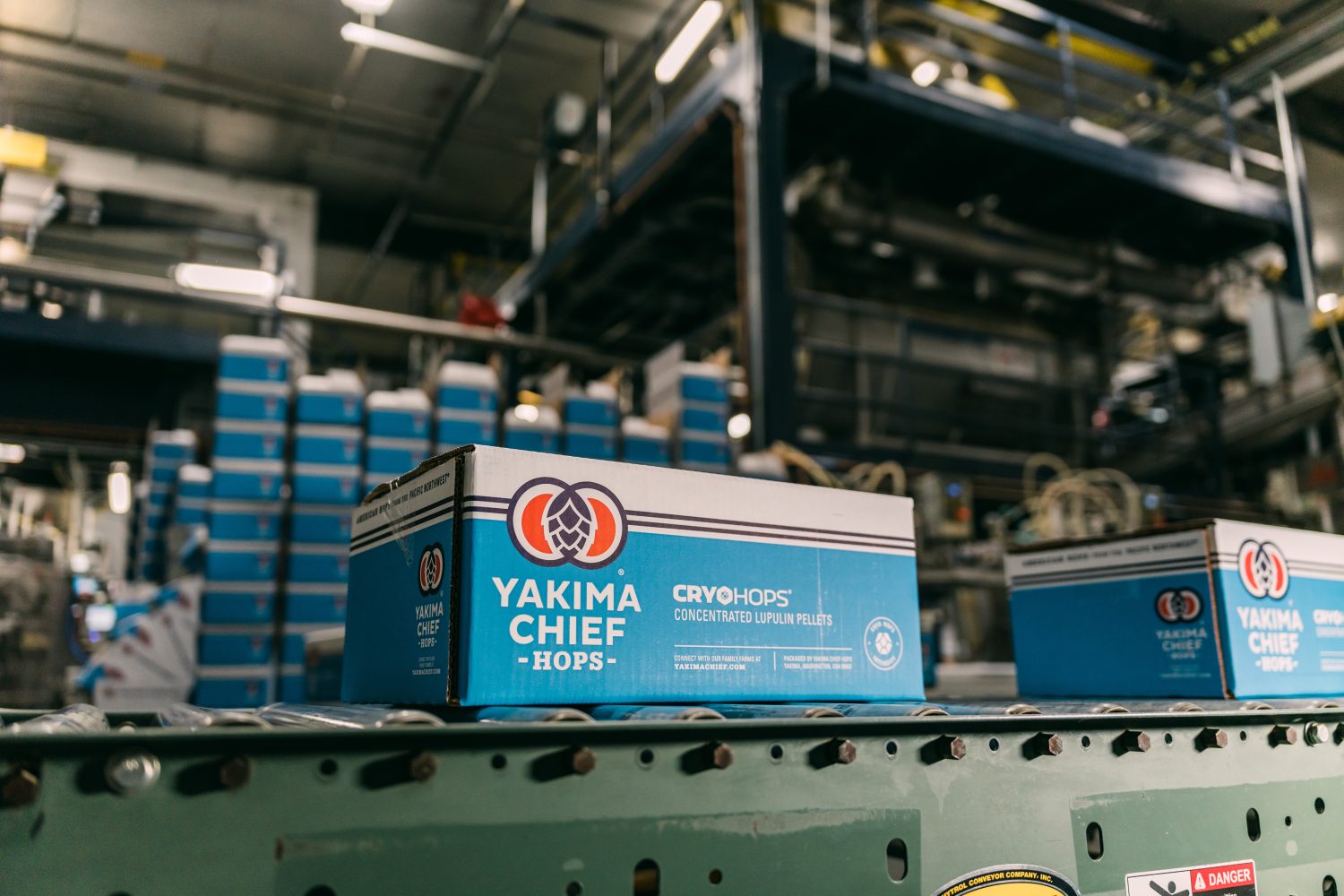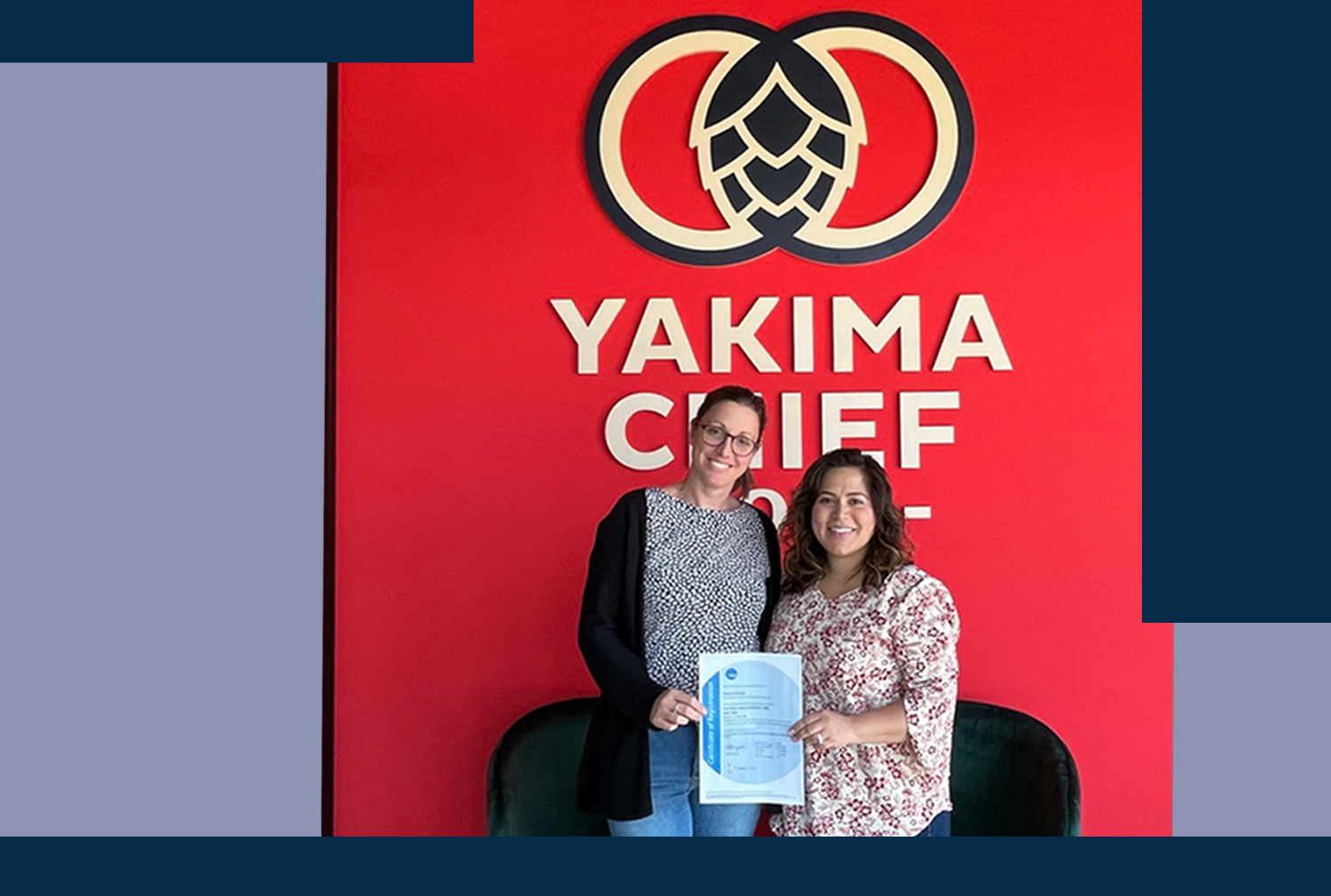Yakima Chief Hops Uses FSSC 22000 to Lead the U.S. Craft Brewery Industry in Food Safety
As the modern U.S. brewing industry evolves, food safety is no longer optional—it’s a differentiator. Yakima Chief Hops, a leading hop supplier in the nation, certified under our globally recognized FSSC 22000 Food Safety Management System, proves that excellence in safety, quality, and operational efficiency go hand in hand.

Here we speak to Elvira Romero, Director of Global Quality Systems at Yakima Chief Hops (YCH), about their journey to certification, its value, and what others in the brewing industry can learn from it.
Why Certification, and Why Now
Yakima Chief Hops connects global customers with the highest-quality hop products. To uphold this promise, the company pursued FSSC 22000 certification, our internationally recognized Food Safety Certification Program that demonstrates YCH’s strong commitment to safety, quality, and sustainability.
You know, for us, quality and food safety—it’s not just a box we tick or a standard we follow. It’s in our DNA. It’s who we are. It’s not something we have to think twice about—it just comes naturally, part of everything we do, every day.Elvira Romero, Director, Global Quality Systems
The certification journey was not about fixing gaps but enhancing and future-proofing existing systems. For a company already deeply invested in quality, FSSC 22000 offered a structured, risk-based framework that integrated seamlessly with their existing ISO certifications, reinforcing compliance and continual improvement.
With three global sites and 270 employees – Sunnyside, Washington (110), Yakima, Washington (121), and Mont-Saint-Guibert, Belgium (39) – Elvira Romero and the Global Quality Team led YCH’s certification efforts.
Introducing a New Mindset: Challenges and Shifts
After evaluating different certification options, the team chose FSSC 22000 for its robustness, global recognition, and compatibility with international and U.S. regulations. For YCH, a major benefit is that FSSC 22000 aligns with U.S. Food and Drug Administration (FDA) Food Safety Regulations. Organizations certified to the FSSC 22000 Scheme and its dedicated FSMA PCHF Addendum V4 can demonstrate conformance with the Preventive Controls for Human Food Rule – an essential requirement for marketing food products within the United States. This alignment supports FSSC 22000 Certified Organizations worldwide that aim to access or expand within the U.S. food market.
Additionally, FSSC 22000 is built on the ISO management system framework, making it highly compatible with other management system standards such as ISO 9001 and ISO 14001. For Yakima Chief Hops, the decision was strategic: a way to future-proof operations while maintaining the integrity of their existing processes.
FSSC 22000 stood out as it provides a robust and effective food safety management system while integrating seamlessly with the ISO certifications we already had in place.Elvira Romero, Director, Global Quality Systems
Though quality and safety have been long-standing values at YCH, implementing a dedicated Food Safety Management System meant rethinking familiar processes. “The initial difficulty was introducing this new concept that concentrates on food safety specifically, when our company has always highlighted quality and safety,” explains Romero. “This elevated level of ‘food safety’ challenged us to dig deep into our existing programs to ensure alignment with the FSSC 22000 certification.”
Tangible Benefits: A Culture of Awareness, Ownership, and Resilience
FSSC 22000 certification has brought significant benefits to YCH:
- Team member awareness and engagement around food safety risks have increased
- Understanding of potential food hazards has deepened
- Safe handling practices are more consistently applied
- Proactive communication and accountability across departments have established an organization-wide food safety culture
- A culture of continual improvement is taking deeper root
These gains extend beyond compliance. They offer a competitive edge in an increasingly safety-conscious industry. “It has helped instill a stronger understanding of potential food hazards, promoted consistent implementation of safe food handling practices, and reinforced the importance of each team member’s role in maintaining a safe and high-quality product,” Romero adds.

Lessons Learned: Building a Robust Food Safety System
The certification process provided YCH with several core insights:
1. Food Safety Culture Is Foundational
A successful Food Safety Management System is not built on procedures alone. It must be rooted in shared values. FSSC 22000 helped YCH embed food safety across every level of the organization.
2. Risk-Based Thinking Drives Resilience
The certification process enabled YCH to integrate risk assessment and mitigation strategies into daily operations. This risk-based approach allows the company to identify potential issues early, act decisively, and maintain operational strength under pressure.
3. Leadership Engagement Sustains Momentum
Active involvement from senior leadership proved vital. Executive alignment ensured that food safety remains a strategic priority, not just an operational one.
Top Tips for Sites Preparing for Their First FSSC 22000 Audit
YCH’s journey offers practical advice for breweries and other food manufacturers considering certification:
-
Build Food Safety into Your Culture Early
Treat food safety as a shared mindset, not just a department’s responsibility. Culture change will make implementation smoother.
-
Choose a Framework That Integrates Well
FSSC 22000 aligns easily with other ISO systems. For instance, if your organization already works with ISO 9001, integration will feel intuitive.
-
Be Ready to Reevaluate What You Already Have
Even mature systems benefit from the deeper evaluation that FSSC 22000 requires. Use it as a tool to strengthen what’s already working.
-
Embrace Risk-Based Thinking
This isn’t just about compliance. It’s about resilience. Embedding risk thinking into daily work builds long-term stability and responsiveness.
-
Involve Leadership from the Start
Top-down commitment makes all the difference. Ensure leaders are visible, vocal, and supportive throughout the process.
Interested in Certification? Here's How to Start:
Explore our insights
-
Insights Webinar FSSC 22000: Hygienic Transport of Food Through Effective Tank Cleaning
Past event
|
3 December, 2025
-
Webinar: Action Plan Towards COP30 - Sustainable Food Systems
Past event
|
6 November, 2025
-
Insights Webinar FSSC 24000: Make with Care, Certify for Trust
Past event
|
22 October, 2025



